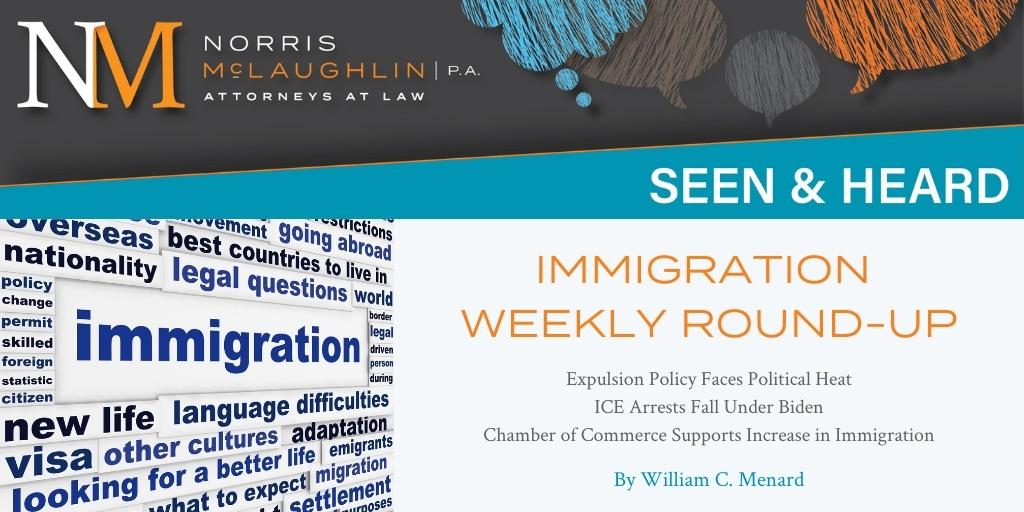ICE Investigators Use Private Database Covering Millions of Individuals to Pursue Immigration Violations

According to Georgetown Law researchers, United States Immigration and Customs Enforcement (ICE) officers have bought private data containing millions of individuals’ phone, water, electricity, and other utility records. ICE will use these records to pursue immigration violations. ICE’s use of this private data shows how government agencies exploit commercial data to gain access to information that they are not to compile themselves.
The Private Database
CLEAR, a database company owned by Thomson Reuters, sells “legal investigation software solutions” to a broad range of companies and public agencies. The data includes more than 400 million names, addresses, and service records from more than 80 utility companies. This data covers information from all the basic utilities such as water, gas and electricity, phone, and internet and cable TV.
According to CLEAR, their database, which is updated daily contains billions of records related to people’s employment, housing, credit reports, criminal histories, and vehicle registrations from utility companies in all the states and territories of the U.S. It gathers credit reporting data from Equifax.
Though Thomson Reuters did not provide a list of its clientele, its marketing documents show its data has been used by a police department in Detroit, a credit union in California, and a fraud investigator in the Midwest. Additionally, federal purchasing records show that the Departments of Justice, Homeland Security, and Defense are among the federal agencies that use CLEAR.
Federal Agencies’ Use of Private Data is Under Review
The House Committee on Oversight and Reform, led by Rep. Jimmy-Gomez (D-CA) and Rep. Raja Krishnamoorthi (D-IL), wrote letters to the chief executives of Thomson Reuters and Equifax, seeking documents on how ICE used the documents obtained from these data companies in the recent years. “We are concerned that Thomson Reuters’ commercialization of personal and use data of utility customers and sale of broad access to ICE is an abuse of privacy, and that ICE’s use of this database is an abuse of power,” wrote the Representatives.
Thomson Reuters directed the letters to ICE, which declined to comment, citing law enforcement sensitivities. Equifax did not respond to the comments. But records reveal that ICE has been using this data since last year. In a Freedom of Information Act response to Georgetown Law Center, ICE noted in July 2020 that it was using information from the public database to investigate individuals who are overstaying. ICE also monitors information that a target has recently departed from their address.
Nina Wang, a policy associate at the Georgetown Law Center, said the database enabled ICE to pursue undocumented immigrants who refrain from getting a driver’s license, but whose data nonetheless falls prey when they pay for utilities and other essentials of life. “There needs to be a line drawn in defense of people’s basic dignity. And when the fear of deportation could endanger their ability to access these basic services, that line is being crossed,” Wang said. “It’s a massive betrayal of people’s trust. … When you sign up for electricity, you don’t expect them to send immigration agents to your front door.”
Will ICE Continue to Use Private Data?
ICE’s subscription with Thomson Reuters, which was a $21 million contract, has expired. ICE is setting up a new solicitation for a “Law Enforcement Investigative Database,” but it remains to be seen whether the Biden administration will approve such a contract.
Federal agencies are subject to regulations concerning access to an individual’s personal information. The Privacy Act of 1974 governs that access; however, the Act does not cover CLEAR or other private database use by federal agencies. Federal agencies have relied on this private data, which they are not allowed to collect without a court order. U.S. Customs and Border Protection officials have used data from cellphone locations, obtained without warrants, to track people inside the country. Though the data is not to be used by the agents, they claim that the individuals have been granted access to it through weather and gaming apps.
To learn more about this blog post or if you have any other immigration concerns, please feel free to contact me at rglahoud@norris-law.com or (484) 544-0022.




